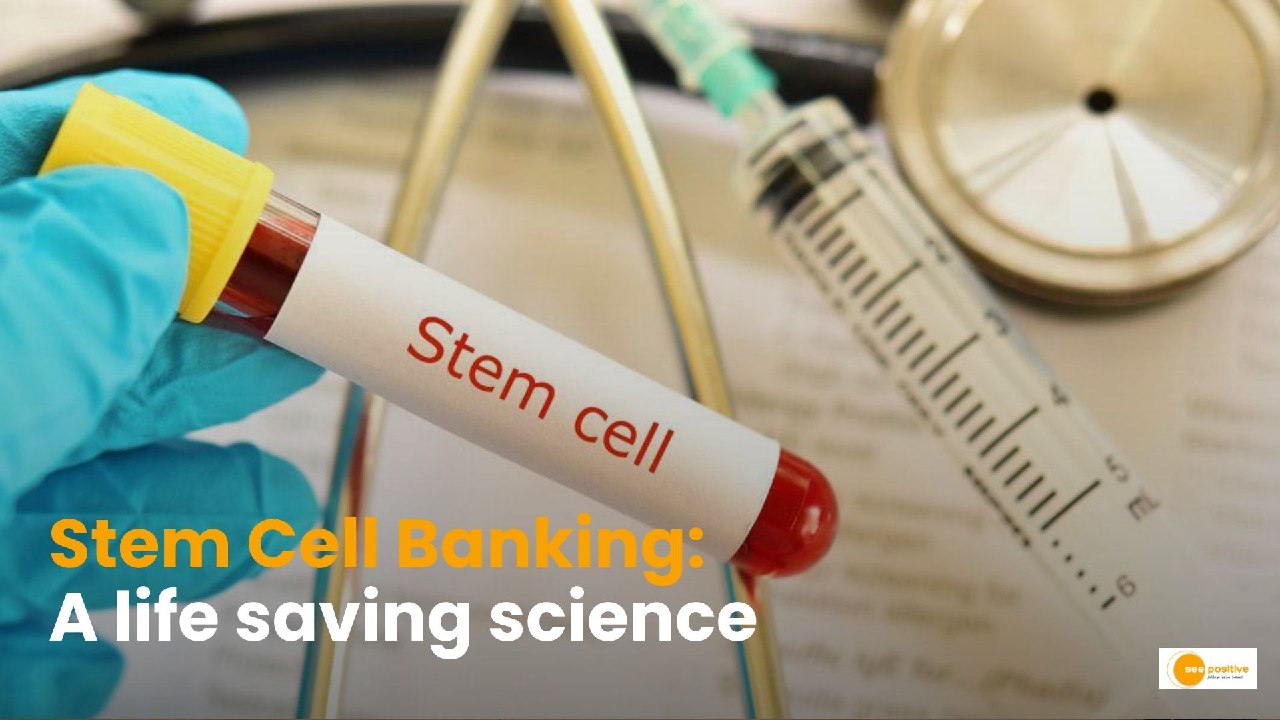Stem Cell Banking: Stem cell banking is a growing field in medical science, especially in regenerative medicine and personalized treatments. This article explores the basics of stem cell banking, its benefits, challenges, and future prospects.
What is Stem Cell Banking?
Stem cell banking is a process of collecting, processing, and storing stem cells for future medical use. These cells can develop into various types of cells in the body, making them valuable for treating many diseases and injuries. Stem cells can be sourced from umbilical cord blood, bone marrow, and fat tissue.
Types of Stem Cells
Embryonic Stem Cells: These cells, coming from an early-stage embryo, can turn into any type of cell in the body. However, due to legal hurdles it is still in limited use.
Adult Stem Cells: Found in tissues like bone marrow and fat, these cells can develop into a limited range of cell types and are commonly used in treatments such as bone marrow transplants.
Induced Pluripotent Stem Cells (iPSCs): These are adult cells reprogrammed to act like embryonic stem cells, offering similar benefits without the ethical issues.
The Process of Stem Cell Banking
Collection: Stem cells are collected using methods like blood draw, bone marrow extraction, or liposuction, depending on the source.
Processing: In the lab, the collected stem cells are isolated and purified to maintain their viability and quality.
Cryopreservation: The processed stem cells are frozen at extremely low temperatures to preserve them for future use, possibly for decades.
Storage: These cryopreserved stem cells are stored in specialized facilities called biobanks, which keep them in a controlled environment for long-term preservation.
Why Stem Cell Banking Matters?
Stem cell banking has potential applications in various medical fields:
- Regenerative Medicine: Stem cells can help regenerate damaged tissues and organs, offering new treatment options for conditions like heart disease, spinal cord injuries, and diabetes.
- Cancer Treatment: Stem cells, particularly those from bone marrow, are used to treat blood cancers such as leukemia and lymphoma.
- Genetic Disorders: Stem cells can replace defective cells with healthy ones, potentially treating genetic disorders.
- Personalized Medicine: Stem cells from a person can be used to create personalized treatments tailored to their genetic makeup, reducing the risk of immune rejection.
Ethical and Legal Issues
The use of stem cells, especially embryonic stem cells, raises ethical and legal concerns. The main debate revolves around the moral status of embryos and the potential for misuse in stem cell research. As a result, laws and regulations around stem cell research and banking differ significantly across countries.
Challenges in Stem Cell Banking
Despite its promise, stem cell banking faces several challenges. The high cost of collecting, processing, and storing stem cells can make it unaffordable for many people. Additionally, there is a need for standardized protocols and quality control measures to ensure the safety and effectiveness of stored stem cells. Ethical concerns, particularly around embryonic stem cells, also pose significant challenges that need to be addressed.
The Future of Stem Cell Banking
The future of stem cell banking looks bright, with ongoing research aimed at making stem cell therapies more efficient and expanding their uses. Advances in technology, such as gene editing and artificial intelligence, are expected to play a key role in this field, potentially leading to breakthroughs in treating diseases that are currently incurable.
Positive Takeaway
Stem cell banking is a rapidly advancing field that has the potential to transform medicine. While challenges remain, the benefits it offers in regenerative medicine, personalized therapies, and the treatment of complex diseases make it an essential area of research and development. As technology progresses, stem cell banking could become a standard practice in medical care, providing hope to many who currently have limited treatment options.


